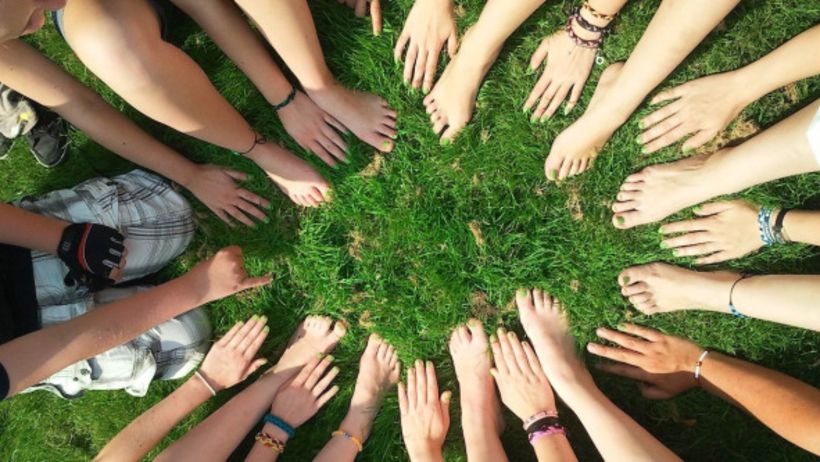As we go through life our experiences and interactions link us to each other. When we build these relationships we end up with a network of colleagues, friends, and acquaintances that we carry with us. If you do any online social networking, you probably know this is the model behind LinkedIn: who do you know, how do you know them, and what skills or services do they have that you or your other acquaintances might benefit from?

Yes, many things in life are about who you know. In Yiddish this is called yichus, the connection and honor bestowed on you by knowing another person of honor. This is common when referring to long familial lines of rabbis or a prominent political figure. In a less public arena, your yichus might be your great-grandparent and their friends, or perhaps that feeling when you move to a new city and find a close connection that suddenly makes you feel welcomed into the larger community. Yichus, the close tie to others, brings a sense of peace and connection as we navigate the world.
Yichus also plays a prominent role throughout our Jewish story. For example, the connection in daily prayer to Abraham, Isaac and Jacob, Sarah, Rebecca, Rachel and Leah helps us tie the entire narrative together. Parshat Vaera, this week’s portion, is no different. This week we find the Israelites in the midst of their transition from slavery to freedom. God reminds Moses about the covenant made with our forefathers and that redemption is in the near future. Moses tries to share this with the people Israel, but they aren’t ready to listen to him. And Moses isn’t so sure of himself anyway.
In chapter 6, verses 13 and 14, we see our text pause and take note of our lineage once more while the people are again refusing to listen to Moses. The text pauses in the middle of our narrative and serves us up a genealogy leading to Moses and Aaron’s parents. This is their yichus. But why now? Our commentators suggest that perhaps the timing is because Moses and Aaron might have needed this reminder of where they’ve come from. They’re not imposters; they have a long line of leaders, Levites, and heads of households behind them who have been leading this people for generations.
Furthermore, maybe the people need the reminder too. That’s not to say that just because your grandfather was a top notch surgeon, automatically you will be too (I wouldn’t trust that logic), but it is to remind us that we at least have the support and backing of our ancestors and of our community when we take bold steps in our lives.
Yichus is all about who you know, but it’s also about how you know them and what happens when you support one another. I, for one, am grateful that my Torah and my yichus connects me with each of you. Shabbat shalom.
– Rabbi Eve Posen
Source: Yichus – Parshat Vaera 5779



